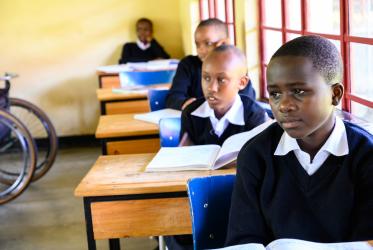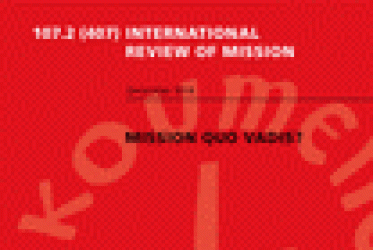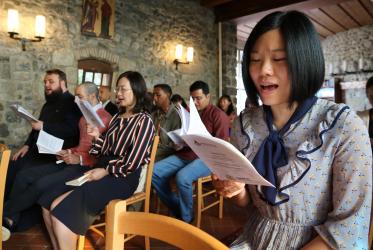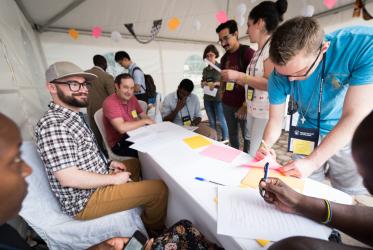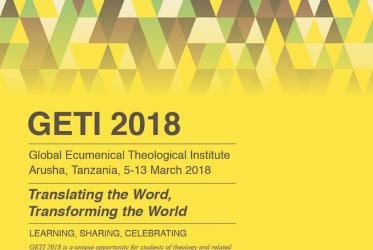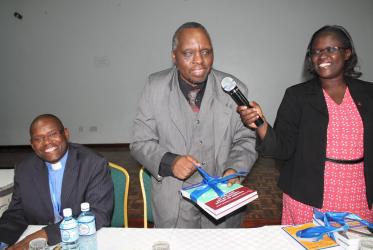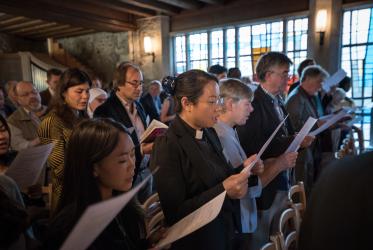Displaying 1 - 20 of 31
23 November 2023
Pandemic and pedagogy: what are the valuable lessons?
21 December 2022
Theological education in Africa promotes social transformation
03 November 2022
New student body at Bossey Ecumenical Institute “a source of joy”
14 September 2020
Mission and people with disabilities
26 June 2019
WCC contributes to contextual theologies course in Morocco
26 February 2019
New issue: International Review of Mission
14 December 2018
Paving the way for ecumenical studies, learning English in Bossey
24 September 2018
New students welcomed at WCC Bossey Ecumenical Institute
13 September 2018
‘Sokoni’ transforms marketplace into mission
13 March 2018
Konrad Raiser shares ecumenical journey of transformation
06 February 2018
The work of the Spirit and discipleship in Christian mission
12 January 2017
New theological materials offer fresh perspective on disabilities
08 December 2016




